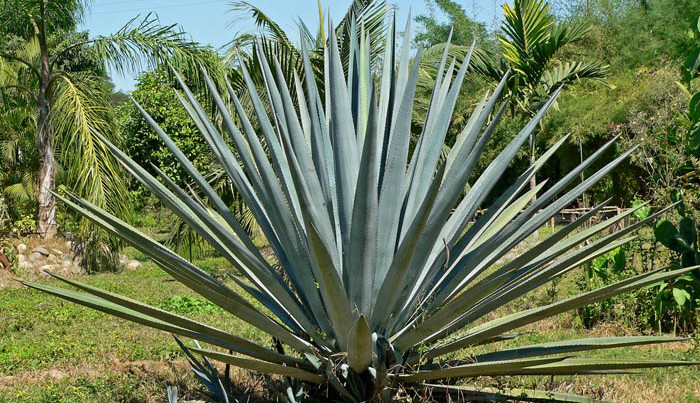Bio-ethanol Instead of Tequila
April 06, 2020
on
on

According to researchers from the Universities of Sydney and Adelaide in Australia and Exeter in the UK the agave appears to be ideal as a basis for bioethanol production, especially in semi-arid Australia. The efficient and low-water produced ethanol is also a good basis for alcohol-based disinfectants, which are currently in high demand.
The article published in the Journal of Cleaner Production examines the potential of agave for the production of bioethanol. The agave tequilana is a sugar-rich succulent grown in Mexico to produce tequila. It is also currently being grown by the MSF Sugar agricultural group on the Atherton Tablelands in the far north of Queensland for the production of ethanol. Compared to sugar cane and maize, there are clear advantages; since the agave grows even in semi-dry areas without irrigation it makes virtually no demands on water or fertilizers. It is also tolerant of heat and drought, making it ideal for the Australian climate.
At the moment, bioethanol production from agaves is not commercially viable due to the low oil price but this situation is changing as its use in disinfectants is becoming more important. The investigation showed that an annual bioethanol yield of 7,414 liters/hectare can be achieved with five-year-old agave plants. Up to 9,900 liters/hectare are possible with sugarcane, but they require much higher levels of irrigation and fertilization. The water consumption of agaves is only 31% relative to sugarcane and 54% relative to corn with the same yield. The cultivation of Agaves in other dry areas of the world shows promise as an environmentally friendly and viable alternative to more conventional sources of ethanol.
*GNU Free Documentation License
The article published in the Journal of Cleaner Production examines the potential of agave for the production of bioethanol. The agave tequilana is a sugar-rich succulent grown in Mexico to produce tequila. It is also currently being grown by the MSF Sugar agricultural group on the Atherton Tablelands in the far north of Queensland for the production of ethanol. Compared to sugar cane and maize, there are clear advantages; since the agave grows even in semi-dry areas without irrigation it makes virtually no demands on water or fertilizers. It is also tolerant of heat and drought, making it ideal for the Australian climate.
At the moment, bioethanol production from agaves is not commercially viable due to the low oil price but this situation is changing as its use in disinfectants is becoming more important. The investigation showed that an annual bioethanol yield of 7,414 liters/hectare can be achieved with five-year-old agave plants. Up to 9,900 liters/hectare are possible with sugarcane, but they require much higher levels of irrigation and fertilization. The water consumption of agaves is only 31% relative to sugarcane and 54% relative to corn with the same yield. The cultivation of Agaves in other dry areas of the world shows promise as an environmentally friendly and viable alternative to more conventional sources of ethanol.
*GNU Free Documentation License
Read full article
Hide full article


Discussion (1 comment)